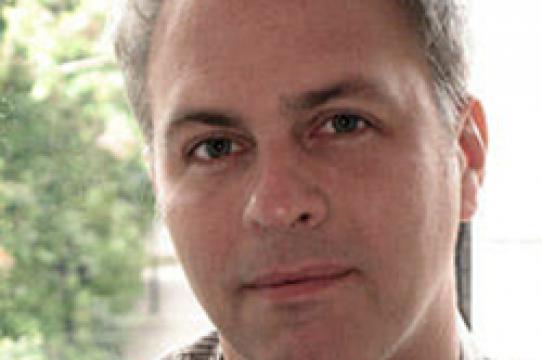Catastrophic environmental breakdown, mass species extinction, financial collapse, racist separatism, global nuclear war…there is much speculation these days that we are living at the end of democracy, liberalism, capitalism, a cool planet, and civilization as we know it.
What are our chances for survival? How can we envision the unimaginable, and what will life look like in the near and distant future?
Faculty and students at UC Santa Cruz will explore these urgent issues over the next two years thanks to a $225,000 grant from The Andrew W. Mellon Foundation to support “Beyond the End of the World”—a Sawyer Seminar on the Comparative Study of Cultures.
The project will bring leading international thinkers and cultural practitioners to UC Santa Cruz to deliver a series of public lectures and will include post-doctoral and dissertation-level research.
It will culminate in an art exhibition and interdisciplinary conversation titled “Beyond the End of the World: Approaches in Contemporary Art”—addressing the topic from the perspective of the visual arts and providing a venue to connect cross-disciplinary thinking.
The Sawyer Seminar is funded through the Mellon Foundation’s Higher Education and Scholarship in the Humanities program.
“Sawyer Seminars offer unique environments for scholars to pursue complex questions that universities’ conventional channels of teaching and research in the arts, humanities, and social sciences may not readily accommodate,” said Eugene Tobin, a senior program officer at the Mellon Foundation. “The ‘Beyond the End of the World’ project demonstrates UC Santa Cruz’s deep engagement with societal “grand challenges” and interest in putting forth solutions through creative, interdisciplinary inquiry.”
The principal investigator for the project is UC Santa Cruz history of art and visual culture professor T.J. Demos, who is working in collaboration with history professor Matt O’Hara, associate literature professor Hunter Bivens, associate anthropology professor Mayanthi Fernando, and associate sociology professor Deborah Gould.
The project team will spend 2018-19 planning and developing the program, with programming activities set to take place in 2019-20.
“End-of-world narratives are omnipresent these days, not surprising given the dystopian political situation, endless wars, and threatening climate catastrophe,” said Demos. “But what comes next?”
“This major research and exhibition project will turn to experimental artists, political theorists, and activists in order to ask where can we glimpse visions of liberated futurity today, and how can we cultivate justice and equality in these apparent end-times?”
Demos is director of the Center for Creative Ecologies which studies the intersection of culture and environment. It is a research-based forum at UC Santa Cruz aimed at developing useful interdisciplinary research tools to critically address and creatively negotiate environmental concerns in the local, regional, and global field.
“The Sawyer Seminar offers a unique opportunity to gather leading artistic and scholarly voices from the diverse contexts of African-American and Indigenous studies, Global South environmental humanities, political ecology and anti-capitalist activism in order to consider ways to decolonize our future,” Demos noted.
“Emancipatory creativity and intersectionalist thinking, in alliance with sciences for the people, are more urgent than ever at this time when we're headed down the path of self-assured destruction,” Demos added. “Throughout the course of the seminar, we'll be asking, how can we not only envision a liberated coming world, but work together toward its realization?”
The Mellon Foundation grant will be administered by The Humanities Institute (THI) at UC Santa Cruz.
“The Sawyer Seminar theme connects to the larger mission of The Humanities Institute, which is to expand the impact and public engagement of the humanities,” said THI managing director Irena Polic. “In the 2019-20 academic year, the THI’s theme will be Future(s).”
“The Humanities Institute is committed to supporting humanities scholarship across the university, and we are proud of our track record in helping faculty in other divisions to compete successfully for major grants,” added THI director and professor of history, Nathaniel Deutsch.
“The Andrew W. Mellon Foundation has been particularly important in cultivating new humanities research, graduate education, and programming on our campus, and we look forward to working with them into the future,” Deutsch noted.
- by Scott Rappaport



